Crossing the Line - Graciane Finzi
Trio for violin, saxophones et piano
A. de F.: What kind of sonorous interactions were you looking for in composing a trio for violin, saxophone and piano?
G. F.: I was immediately drawn to this very unusual formation. I had written a lot for piano and violin or trio with piano, but never for this particular ensemble. Likewise, I greatly enjoy the saxophone, as shown in the pedagogical piece De l’un à l’autre for alto saxophone or clarinet and piano (1976) and Cinq séquences for saxophone (1982). In Crossing the Line, I chose to make the most of two different saxophones–soprano and alto–in order to widen the instrument’s range. The saxophone is at times autonomous; at other moments, it joins the piano and/or violin to produce homogeneous sounds or initiate interactions. Likewise, I propose specific timbre associations as when the soprano saxophone plays staccatos or slaps combined with spiccato or else Bartók pizzicati on the violin. This pursuit of “unheard of” sounds has given me enormous compositional freedom. I hope to contribute to broaden the repertory for this original formation. In fact, the trio was designed in the perspective of an intense collaboration among the three instruments.
G. F.: I do not have a “pre-determined system” (tonal, dodecaphonic, serial, etc.). I often work with an ascending or descending chromaticism, systematic or non-systematic; a chord or an aggregate moves toward another one as if “magnetized”. From 1979-1995, my musical language incorporated juxtapositions of tempi in quite a systematic manner. However, a turning point took place with Concerto for piano and orchestra (1997) whereby even if classified harmonies can be identified, they become “gigantic” harmonies (aggregates) as they are juxtaposed. I also had the idea of exploiting a very romantic piano through a contemporary language. The pieces that followed were a continuation of this work, as is the case of Crossing the Line. In terms of form, this trio is close to a fantasy with its distinct atmospheres: sometimes suspended, sometimes very “jazzy”, especially at the end.
A. de F.: Crossing the Line was written for the Trio Empreinte, but also dedicated to the three musicians. Can you speak of the collaboration that subsequently emerged?
G. F.: First of all, we got along very well together. The preliminary exchanges on the work involving rests, the blend of sounds, and balance were quite important. I was in charge of the artistic direction of my trio’s recording, which allowed us to refine or change dynamics, articulations, and pedals. I paid very special attention to sound restitution as I wanted it to be as faithful as possible to the real sonority of the Trio Empreinte. There is a genuine unity among these three wonderful musicians. A magnificent collaboration!
A. de F.: Crossing the Line is also the first work written after the death of your husband, Gilbert Lévy. Did this original piece take on special meaning for you?
G. F.: Indeed, it was composed at a very painful time of my life when I had difficulty writing. Moreover, I have pointed out that I had included a large number of descending chromaticisms in this work that evokes this sadness. In some ways, it was basically a desperate gesture, but it led me to get beyond myself. I had the impression I was pushing back my own limits.
Duration : 10'
Trio for violin, alto and soprano saxophones and piano





















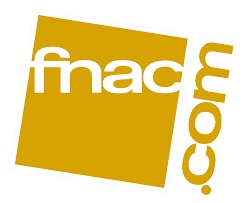
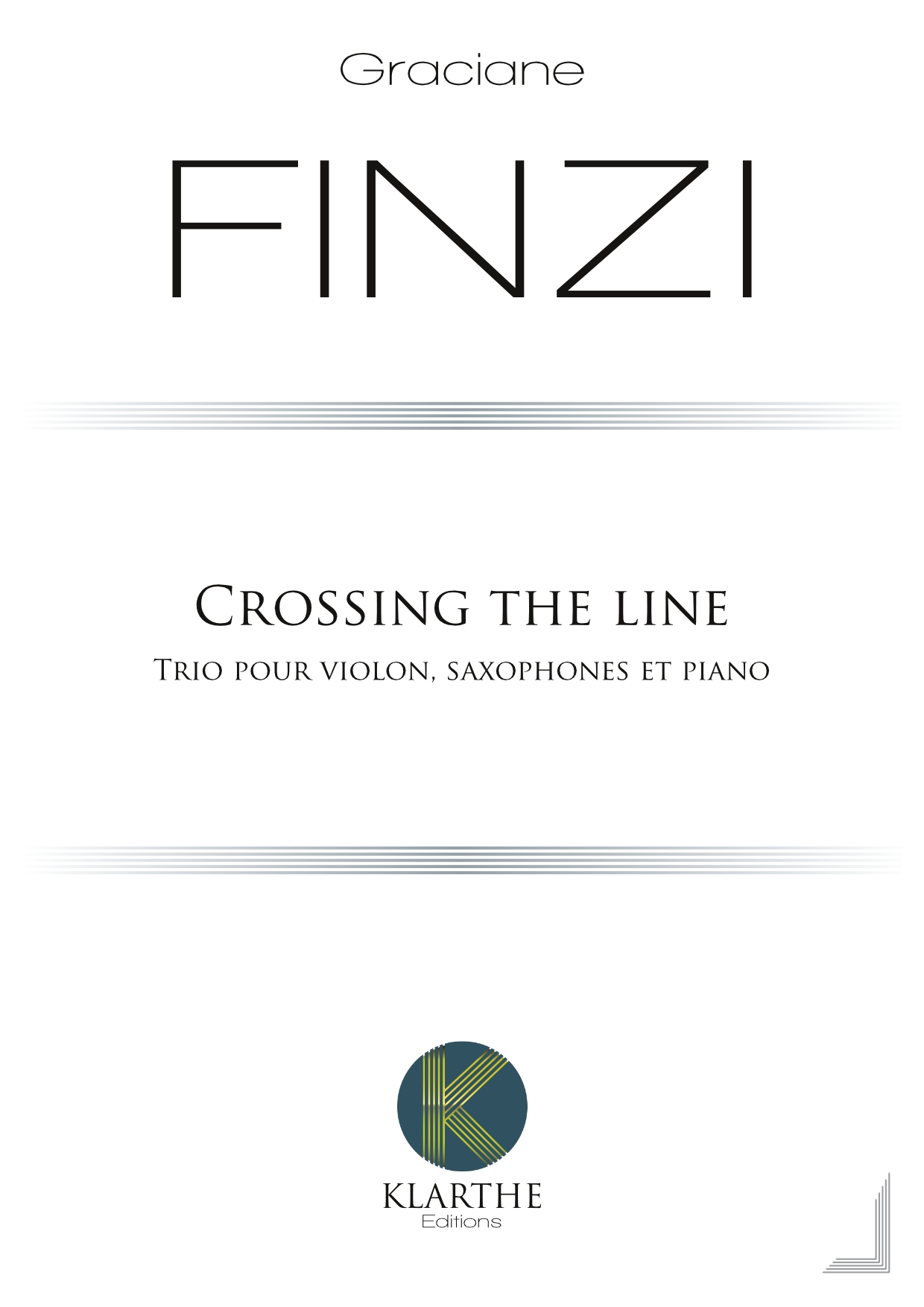
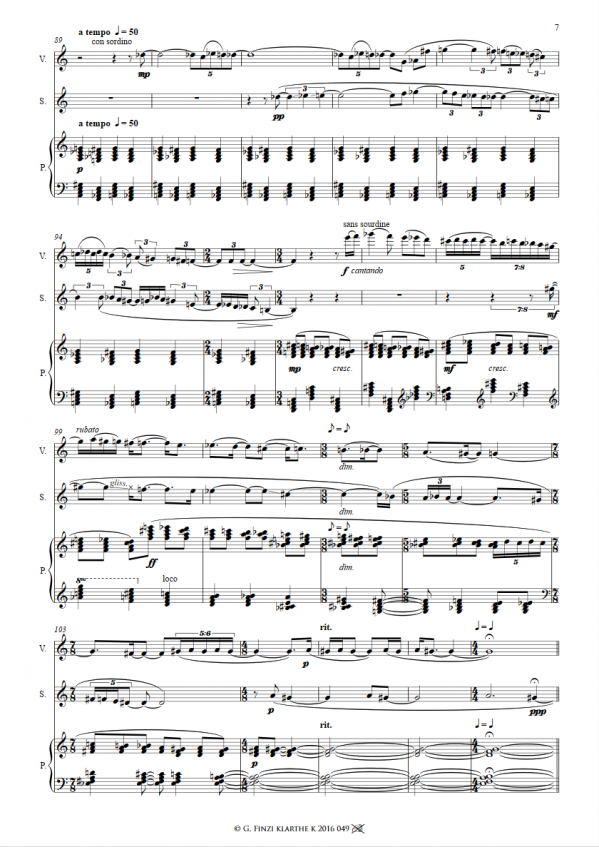

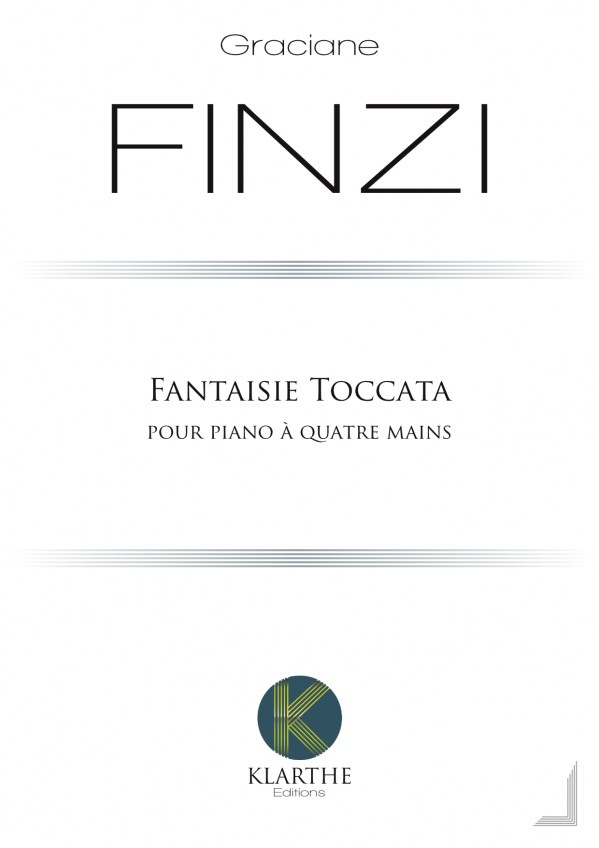 Fantaisie Toccata - Graciane Finzi
Fantaisie Toccata - Graciane Finzi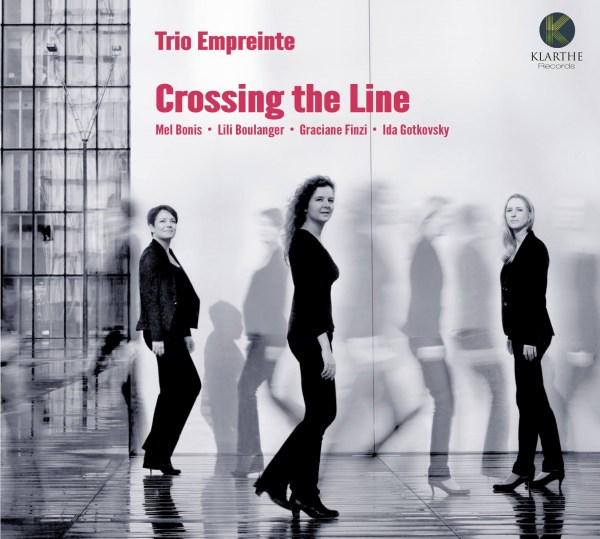 Crossing the Line
Crossing the Line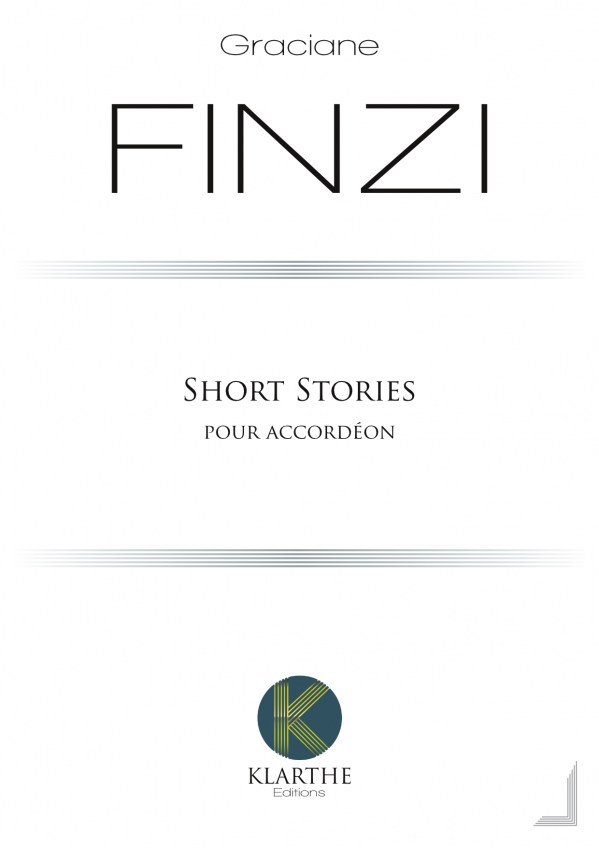 Short Stories - Graciane Finzi
Short Stories - Graciane Finzi